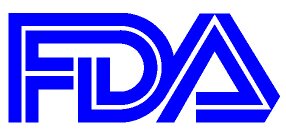(Dan Vorhaus’ comment on a previous post recaps a number of key issues discussed during Regulation Week here at Genomes Unzipped, so I’ve promoted it to be the final post of the week – and the final post, for the moment, on the regulation of the direct-to-consumer genetic testing industry. These are questions we all – and especially the FDA – need to consider carefully over the next few weeks. Next week we’ll be getting back to the science, at least until the next regulatory scuffle emerges. DM)
1) Wait and Talk. On the topic of “don’t knock it until we see it,” while I think Jeff and Kate’s point is well-taken, I would also suggest that it is incumbent upon the regulated community – which includes companies, investors, customers and even clinicians – to speak up about what does and does not make sense when it comes to a regulatory solution. The FDA’s public conversation was part of that process, but that was (a) not directed specifically at the regulation of DTC testing and (b) should mark the beginning, not the end, of the dialogue. There are still a number of options on the table, and not all of them are equal. Waiting passively for regulators to act may not be the best strategy.
2) Line-Drawing. It’s clear that whatever regulatory system emerges – and this applies to the much broader category of lab-developed tests (LDTs), as well as to DTCs – the issue that Caroline, Misha and so many others have identified is going to be one of, if not the, most difficult to solve: what counts as a medical interpretation worthy of heightened regulatory scrutiny?
Regulating all genomic interpretations is incompatible with providing broad access to genomic information, since only a handful of people can interpret the raw data on their own (and I’m certainly not one of them). But determining where to draw that line, particularly given the interconnectedness of gene-trait associations and the rapid rate of change in the science (both discussed in this comments thread), is going to be fiendishly difficult. The key will be to come up with some standard-setting body that strikes the proper balance between involving stakeholders (this is an issue that should not be determined by the FDA – or any other agency – acting on its own) and minimizing the number of voices so that the body is nimble enough to respond to changes in the science. I’m not sure there are any perfect solutions here.
2a) Useful to Whom? A sub-point here is whether that line-drawing incorporates (i) analytical validity, (ii) clinical validity and/or (iii) clinical utility. I think that there is widespread agreement on (i), a general agreement that (ii) is important, although no clear agreement on how to assess it, and very little agreement about whether (iii) is appropriate. The issue of clinical utility gets at one of the core tensions here: is my genomic information useful when I say it is useful, or only when my doctor (or some standard-setting body) says it is useful?
3) What is special about DTC? When it comes to the regulation of DTC genetic tests – as a subset of all other genetic tests – I think we (and regulators) need to be much clearer than at present in explaining where, exactly, the concern lies. Is it that individuals are being misled by untrustworthy businesses? If so, then the Federal Trade Commission (or possibly the FDA acting in a similar role; the Genomics and Personalized Medicine Act would have the two agencies work together) has a clear role to play. Is it that genetic tests are not appropriately evaluated beyond analytical validity? If so, then it’s not clear that DTC tests should be regulated differently than the broader category of LDTs. Or is that individuals cannot be trusted to appropriately handle certain types of genetic information and interpretations? If so, then it may be that certain types of information simply cannot be presented directly to consumers, although then we return immediately to the line-drawing problem discussed above.
It is insufficient to know that the FDA intends to regulate DTC genetic tests (as they clearly do); what is needed is a clearer explanation as to whether, why and how DTC genetic tests are to be regulated differently from other types of tests.
4) Transparency First. Finally, I can only echo Daniel’s comment that, no matter what, there is a need for greater transparency. By this I think we both mean a more proactive approach to data collection (i.e., what genetic tests are available, how they are marketed, how they are used by individuals and what impact – positive or negative – they have on end users, both with respect to and apart from influencing medical decisions) and greater regulatory openness. Without such transparency it is difficult to see how any government entity can expect to craft a regulatory framework that strikes the proper balance between the protection of the public and the preservation of innovation and long-term growth in the area of genetic testing and personalized medicine.
 Disclaimer: Genomes Unzipped received 12 free kits from Lumigenix for review purposes, and Dan Vorhaus has provided legal advice to the company. We plan to release a full review of the Lumigenix service in early July.
Disclaimer: Genomes Unzipped received 12 free kits from Lumigenix for review purposes, and Dan Vorhaus has provided legal advice to the company. We plan to release a full review of the Lumigenix service in early July.

 RSS
RSS Twitter
Twitter
Recent Comments